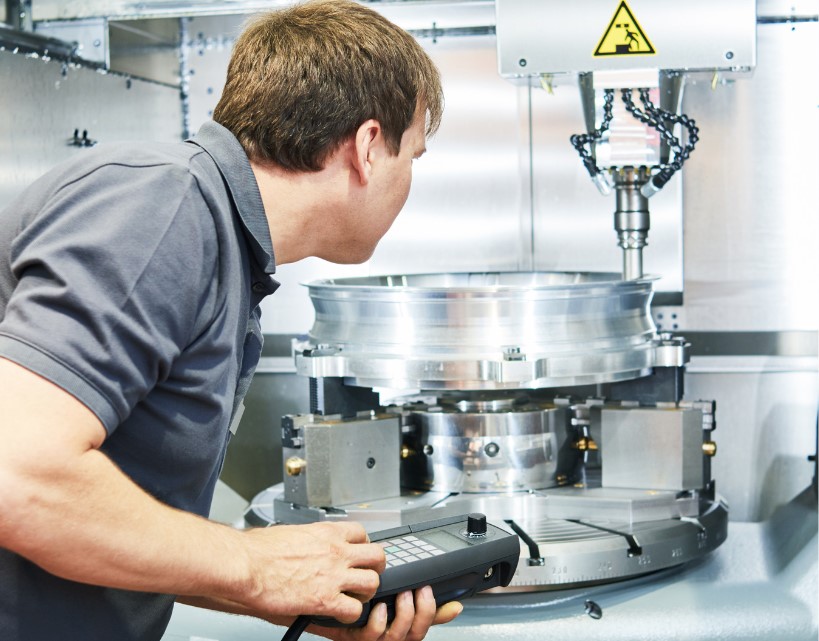In the last few decades, Computer Numerical Control (CNC) machine machining has revolutionized the world of engineering and manufacturing. By integrating digital technology with traditional machines, CNC machining has emerged as the most popular method of manufacturing high-precision components and parts in a variety of industries. This article explores the mechanics, benefits and numerous applications of CNC machining to highlight the impact it has on the modern engineering.

The Mechanics of CNC Machining
CNC machining is a subtractive manufacturing process which means that it removes the material from a solid block or workpiece in order to achieve the shape you want. The software that computers use to control the machine movements is pre-programmed. The code used for CNC machines varies based on the specific model of machine and on the complexity of the component being manufactured. But, the concept remains the same: a high-speed cutter precisely carves away materials to produce the finished product.
CNC machining has many advantages. One of these is its precision. Digitalization allows for precise and reliable production. This helps reduce human error and ensures consistency across batches. This level of accuracy is vital in industries such as aerospace and medical devices.
The role of digital computers for CNC machine operation
CNC Machining is a highly accurate and efficient process which is dependent on the digital technology. CNC machines are controlled by specialized software that automates the entire manufacturing process. The software converts CAD designs into precise instructions that the CNC machine follows in order to produce the part. These instructions specify everything starting from the cut’s depth as well as the angle, and also the speed of the tool.
In facilities for industrial use of a larger scale, computers can be connected directly to CNC machines. This allows seamless communication and control. This integration enables real-time monitoring that ensures the highest performance and reduces the time between maintenance. CNC is a machine that can be automated in order to enable continuous operations, which increases productivity and reducing lead time.
CNC Machining: Its Benefits
CNC machining has numerous advantages over traditional manufacturing techniques. One of the main benefits is its ability to create complex and intricate components with a high degree of precision. CNC machine’s precision can eliminate the need to make manual adjustments or perform rework. It decreases waste and boosts efficiency. CNC machines are also able to work continuously. This makes them perfect for large-scale production runs.
Another benefit is the versatility of CNC machining. The CNC machine can be used for the production of a broad range of components by simply changing the software. CNC machines are adaptable and is suitable for prototyping as well for mass production. This allows manufacturers to quickly respond to market demands changes.
Automating CNC machining increases safety at work. Injuries and accidents are less likely when manual intervention is not necessary. The constant quality of CNC machines improves the durability and efficiency of products, which contributes to the satisfaction of customers.
CNC Machining Services Benefits for Industries
CNC machineries are utilized in a myriad of industries. All benefit of its efficiency, precision and adaptability. In aerospace, CNC machines produce critical components that must be in compliance with strict quality and safety standards. CNC machines are used in the medical device sector to create complex surgical instruments and implant devices, where accuracy is key.
CNC machining is utilized in the automotive industry to make parts for transmissions, engine components along with intricate interiors and exteriors. Electronics also benefit from CNC machining, which can produce small, intricate parts for consumer electronic and communication devices. The art and jewelry industries rely on CNC technology to produce intricate designs and customized pieces.
The future of CNC Machining
As technology continues to advance, the capabilities of CNC machine-making are predicted to grow further. Multi-axis machining and additive manufacturing integration will continue pushing the limits of CNC technology. The development of machine learning and artificial intelligence will likely improve the precision and efficiency of CNC machine machining.
CNC machining is a powerful tool that has changed the face of manufacturing and engineering in the contemporary era. It has unbeatable quality, flexibility and effectiveness. The capability to make high-quality, complex parts makes CNC machining a valuable instrument in a wide range of industries. CNC Machining is expected to play an important function as technology improves.